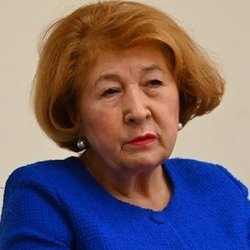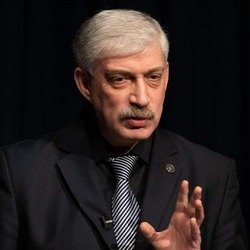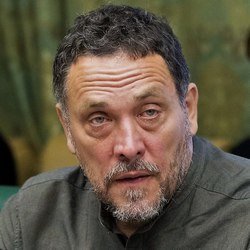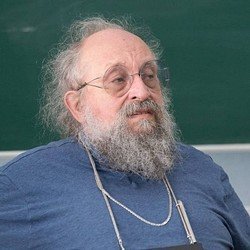Triumph of journalism, informed decision or recognition of success in Russia’s breakdown?
Journalists, political experts and pundits on what the Nobel Peace Prize given to Dmitry Muratov means
It became known on 8 October that journalists — Russia’s Dmitry Muratov and Maria Ressa from the Philippines — were awarded the Nobel Peace Prize. This became a huge surprise for both Nobel Prize laureates and the world. Dmitry Muratov himself, editor-in-chief of Novaya Gazeta, admitted that he declined a call from Norway first assuming it was a nuisance call. Realnoe Vremya asked famous political experts, public activists and journalists what they thought about this and why the Nobel Committee made such an unexpected decision. The opinions are contradictory. Read in a survey of our newspaper what Zilya Valeyeva, Leonid Tolchinsky, Maxim Shevchenko, Shamil Idiatullin, Anatoly Wasserman, Ilya Grashchenkov think about this good news.
Zilya Valeyeva: “There were a lot of presuppositions, but there was none about journalism!”

“I am sincerely happy about this event. As a journalist in the past, I can say that I always respect a standpoint. You know, you can agree and disagree with something, but a journalist must have an opinion. And there is no denying the fact that Muratov does have an opinion, he has been very consistently defending it for 30 years. Also, society’s life is anyway always very complex. And a healthy society should always have such sources that allow seeing what is half-baked and what needs to be put effort. Yes, Novaya Gazeta is probably not the newspaper everybody applauds in unison. In any case, their publications, especially serious analytic and investigation pieces are very important. The genre of investigative journalism today is, in fact, lost but it always existed. It is a very serious and meticulous job. The fact that people haven’t forgotten the true principles of their profession always causes both respect and interest. Because to have your own opinion today, to figure out the full picture, it is crucial to be familiar with information from different sources.
There were a lot of presuppositions who would win the Nobel Peace Prize in 2021. But there was none about journalism! But it seems to be a trend, there is something in the air. Look, President Rustam Minnikhanov also talked about this topic in his address to the State Council, he touched on the role of the mass media and objective information for society. Since unverified information, different types of speculation sometimes replace journalism, which we already started to get used to. Anyway, this isn’t creativity, it is old and rusty instruments. And today, in a very complex world, a journalist’s honest position is key. Moreover here, when we got used to trust journalists. Unfortunately, some staff members facilitated discrediting this trust quite a lot.
But I think the Nobel Prize can set the record straight. Take event the names of our Nobel laureates, they are anyway the most worthy figures in science, literature, culture... And the fact that there was found a spot for a journalist finally speaks about the recognition of the role of journalism in the modern world. I think it is a very important sign. Perhaps, we still should rethink this, but this is a serious event one cannot take lightly. And the fact that the editor-in-chief of the Russian newspaper got the prize means that Russian journalism is alive!”
Leonid Tolchinsky: “This is also a tribute to his colleagues who died in a storm of bullets”

“There were some girls there, Gretas, Tsikhanouskayas and many others. It feels sometimes that the awards in humanities are given due to the political necessity or hopelessness. And the nomination of the Nobel Prize in Literature in 2021 is evidence of it — the winner’s last time will unlikely be remembered the next day (Editor’s note: writer Abdulrazak Gurnah received the Nobel Prize in Literature in 2021 “for uncompromising and compassionate” look at the “effects of colonialism and the fate of the refugees.” The writer is from Zanzibar, moved into Great Britain). And this continued several years in a row. Approximately the same happens to the Nobel Peace Prize — a handful will remember who was given this award last year,” he thinks.
Tolchinsky considers that it is already good that a representative of journalists has been given the Nobel Peace Prize this year:
“The meaning, the place and the role of journalism in the modern world is constantly discussed. And the fact that a person of this profession who, moreover, has sincerely been loyal to this profession all his life, working with absolutely exclusive materials has been noted at such a high level inspires optimism in these long debates on the place and role of journalism in the modern world,” our interlocutor believes.
As Tolchinsky noted, Muratov created quite a powerful media outlet and managed to get through all hardships.
“The staff of Novaya Gazeta is legendary but, unfortunately, on the hit list. This could break any editorial board, any person chairing a mass medium. But he didn’t break. In this respect, he is worthy of respect,” Tolchinsky is convinced.
Tolchinsky thinks that half of the media world can be awarded the formulation Muratov was given the prize with — “for their efforts to safeguard freedom of expression, which is a precondition for democracy and lasting peace.”
“It is like for world peace. But it seems that they wanted to award him very much. And thank God he was given the award. Firstly, ours was given the award so let’s be happy for Russia. Secondly, our colleague was given the award. Thirdly, a person who despite all the twists and turns saved, demonstrated how such a tough staff as journalists and creative people can be saved. This is also a tribute to his colleagues who died in a storm of bullets. And it is hope for us that a journalist’s word doesn’t play the least role in the world, including in the Russian-speaking one, and it is noticed,” our expert thinks.
Leonid Tolchinsky admits that he isn’t familiar with Muratov personally:
“I am not one of the admirers of Novaya Gazeta. Though the issues they bring up are always on everyone’s lips. But this isn’t a style I read voraciously from cover to cover. At the same time, Novaya Gazeta has always caused respect and made good media noise, which must be a necessity for the existence of the mass media,” Realnoe Vremya’s interlocutor acknowledged.
Shamil Idiatullin: “It is a milestone for the country, society and Russian journalism”

“It is a milestone for the country, society and Russian journalism. One can have different attitudes to Novaya Gazeta and its head, but it is for sure that they remain a very important symbol of classical independent journalism. It is good that its value is seen at least from Oslo. I am not sure, unfortunately, that the prize will improve the situation with the press or protect journalists. But if the status of laureate will allow Muratov and his newspaper to keep working in full swing, fearing other problems and attacks less, this is already much...”
Maxim Shevchenko: “I know that he never betrays either his alive or dead journalists”

“I think that Dmitry Muratov and the journalists of Novaya Gazeta — both alive and dead — deserve the Nobel Peace Prize like nobody else. There has not been such a war, such a place in the last 30 years where people would feel distress and grief and Novaya Gazeta journalists would not be nearby. They were at both Chechnya wars — Anna Politkovskaya, Natalya Estemirova. They were in Beslan — Yelena Milashina. They were in Donestk — Pavel Kanygin. I have met them everywhere, and they have done an act of mercy, an act of peace everywhere. And Dmitry Muratov has coordinated, protected, educated all these people. This is why I think that it is an absolutely deserved award, I sincerely congratulate Dmitry Muratov and all NG journalists on the award. I know that he never betrays either his alive or dead journalists. He will ensure the murders — of Orkhan Dzhemal who worked at Novaya Gazeta for many years, Natala Estemirova, Anna Politkovskaya — are investigated. And we can rest assured that he and his journalists deserve this award like nobody else.
To be honest, the hysteria Leonid Volkov created shocks and surprises me. With all respect to Alexey Navalny, being a political prisoner and experiencing suffering doesn’t yet mean being a person who has acted for the good of the world all his life as Dmitry Muratov and his journalists do.
While the award given to Muratov, not the staff of Novaya Gazeta, is absolutely fair, I think. The newspaper couldn’t work and live without him. He is a teacher, a mentor, a protector and an editor-in-chief. I think that Mr Muratov deserved the award. By the way, as he has already said himself this award, in his understanding, is an award given to all his journalists, alive and dead. I didn’t expect him to say other words.”
Anatoly Wasserman: “Here, one can lie brazenly in public, and nobody will take you to court for this”

“This is already the third Nobel Peace Prize given to our compatriot. And of course, merits in the breakdown of our country or at least worsening of the moral climate in it have been noted by this award three times. And if in the case of Andrey Sakharov, this was somehow compensated by his huge role in the creation of what is now usually called the missile and nuclear shield the Homeland, Mikhail Gorbachyov and Dmitry Muratov don’t have such merits. So thanks to the Nobel Committee for not acknowledging this person better than those.
When a coup was plotted in Belarus last year under the guise of the non-recognition of election results, which is traditional for such coups, this fake fell to the ground that was well fertilised by Nobel Prize laureate in literature Svetlana Alexiyevich. But Alexiyevich herself wasn’t allowed to perform the task of destroying the country. I think when there will be an attempt of taking the crowd to the streets in 2024 with the slogan ‘We don’t believe presidential elections,’ Muratov will stay at bay. I think he perfectly understands that approximately the same as in Belarus will be done to the crowd. While he has a well-developed instinct of self-preservation.
As for the fact that the newspaper has been existing for so many years and somebody supports it, thank God, unlike some France or the United States of America, we have a democratic country. Here, one can lie brazenly in public, and nobody will take you to court for this (though this should be done, of course). Also, the Kremlin has a lot of towers. No power in the world is purely homogenous and single-minded. They all have a lot of intrigues, there are a lot of groups scheming against each other, and some of these groups use even such people as Muratov. To put it roughly, huge flows of different compromising information is leaked through him. Of course, a few take it seriously, but Muratov isn’t taken to court for this. Only a few people related to commerce, not politics, managed to have some publications recognised as slanderous in the court. Therefore when somebody comes under fire of dirt cannons, he, as a rule, doesn’t try to argue with them but tries to agree with their patrons.”
Ilya Grashchenkov: “Muratov and his editorial board are investigative journalism everybody is interested in”
“After the Nobel Prize given to Obama in advance, the Nobel Committee ended up in a difficult situation when everybody started saying: ‘That’s it, this is the end of the Nobel Committee.’ They needed to restore the good name. It seems to me that now they are trying to step aside from frankly political stories by all means. Navalny, of course, is a political story. Tsikhanouskaya is also a political story. Something less political had to be found, but not new, freshly promoted projects like Greta Thunberg that can quickly leave the media space. While Muratov is an old-school, not a political story, it is about human rights, a systemic job lasting for three decades. So here we see a completely new approach to choosing a laureate than before.
Everybody expected Navalny to be the laureate. Navalnyists themselves had been preparing for this, the authorities had also been preparing for saying once again that the West was full of rascals. I think in this story the decision of the Nobel Committee is European. The projects like Navalny are pro-American, in fact. America quite openly backs Navalny up. While Europe is colder except for Merkel who visited him at hospital. Off the top of my hat, I cannot remember the approval of his activity. ‘It is good that somebody is fighting corruption in Russia, but we don’t meddle there.’ So I think it is an informed position of Europe. ‘Now we will give Navalny the award, we will have problems with Russia again. Do we need it? Our gas prices are growing. We have other things to care about. Such an European pragmatic approach.”
Speaking about the opposition nature of Muratov and Novaya Gazeta, only a systemic newspaper can normally survive after such a long period of time. I have seen opinions that NG is in the style of Gorbachyov, Navalny’s precursor. In fact, he isn’t. It is a special genre of real investigations that are impossible without contacts with special services. Somebody has to leak data for them, home in on sources. And people really risk their lives, somebody has been killed, somebody has faced threats. And this wasn’t a political order. Novaya Gazeta has an absolutely different approach compared to Navalny: it shows truly flagrant cases that must be investigated, including the current system’s reaction. Strictly speaking, if people are tortured in cells, the administration of the Federal Penitentiary Service of Russia must be aware of this. This is why I would not say that Muratov and his editorial board are the opposition. And this is indeed investigative journalism. Everybody is interested in it. Even though the authorities don’t like being mentioned in these investigations, they should be paid tribute, they tolerate, and a few functionaries start threatening and opposing. The rest considers these reports as a signal.
In other words, nothing extraordinary has happened from a perspective of the relationships between the Russian authorities and journalism. Now many are starting to assume that now they will be slandered, recognised as foreign agents. But I think it will be the other way round — perhaps, the pressure that is now put on the press in Russia will start weakening. I think Novaya Gazeta also expresses the interests of a certain group of elites who want to see Russia a civilised country with investigative journalism, not North Korea that shut down and glorifies the chief in unison.”